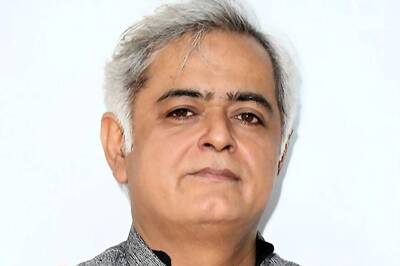
views
Like with the economy, it is appears to be a K-shaped trend in the market for initial public offerings (IPOs) of late. But with a difference. The big companies are doing well and the smaller ones are struggling when it comes to the economy. In the primary market, the reverse seems to be true going by the events of the past couple of weeks.
First, the Paytm IPO got a lukewarm response and the shares listed at a steep discount. Then last week, the IPO of Star Health and Allied Insurance Company—which counts Rakesh Jhunjhunwala among its investors—issue just about scraped through. Ask market pundits and they will say that both issues were badly overpriced. They may have a point, but the same holds true for many of the smaller issues that have been hitting the market recently. To add insult to injury for Paytm and Star Health, IPOs of most little known companies are not just getting subscribed to heavily, but quite a few of them have delivered hefty listing day gains as well.
So is it really about big investors sending out a signal that they won’t stand for overpriced issues?
Chatter on the street is that it is a combination of expensive valuations, change in sentiment and last but not least, NBFCs becoming wary of lending funds to wealthy investors for large sized IPOs. One thing common to the Paytm and Star IPOs was the underwhelming response from wealthy investors—HNIs or high net worth individuals—who bid for the non-institutional portion of the book.
No F&O for DMart
Last week my colleague Anuj Singhal raised the question as to why DMart has not been included in the list of securities eligible for futures and options trading on the NSE. This despite the stock fulfilling all the four criteria for making it to the hallowed group. That raises another question as well: is addition to the F&O list an automatic process or does the exchange need the company’s permission before including it?
So far in 2021, the NSE has included 60 stocks in the F&O list. Not unusual during a bull market when prices are rising almost one way. A similar trend was seen during the bull market of 2007 as well. Many promoters crave to have their stocks in the F&O group, particularly the ones known to dabble in their own shares.
But DMart founder Radhakishan Damani would not be complaining about his stock not making the cut. He has been around in the market long enough to know that an F&O presence is a double edged sword. In a bull market, it amplifies the rise in stock price as traders load up on the futures for a small upfront margin. But in a falling market, it becomes a powerful tool in the hands of bears looking to hammer stocks.
Ideally, cash market prices should set the trend for the futures prices. But it is perfectly possible to manipulate the cash market price by influencing futures prices on either side. If some traders come together and hammer away at the futures in a coordinated fashion, it could push the futures price below that of the cash market price. This could trigger a reverse arbitrage wherein some investors may sell DMart shares and buy the futures for a quick arbitrage. The selling in the cash market could in turn depress the stock price, inviting further selling from nervous investors.
There is no disputing the soundness of DMart’s business model, and Damani’s ability to hold his ground in a fiercely competitive arena dominated by rivals with deep pockets. But valuation is a different matter altogether, especially now that market sentiment has turned for the worse. Having been at the head of bear legions raiding overvalued stocks during the market crash of 2008, Damani would only know too well what it feels to be on the other side of the gate when the bears come knocking.
Read all the Latest Opinions here




















Comments
0 comment